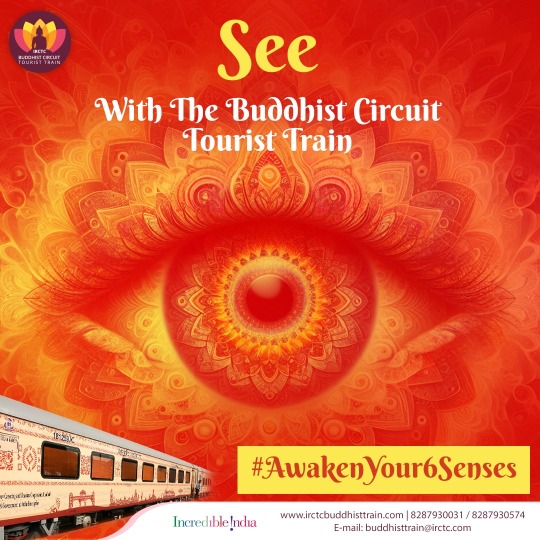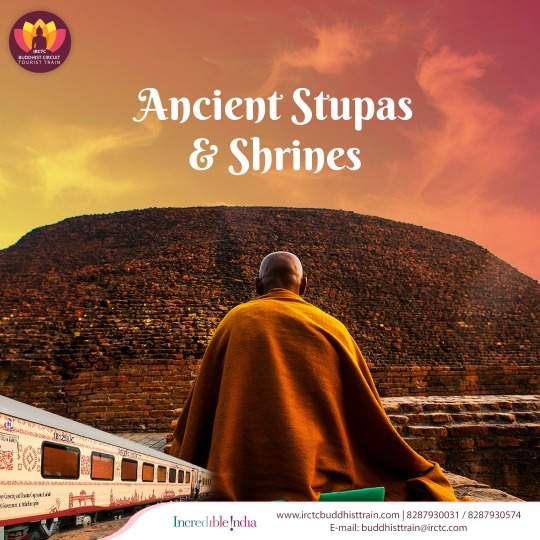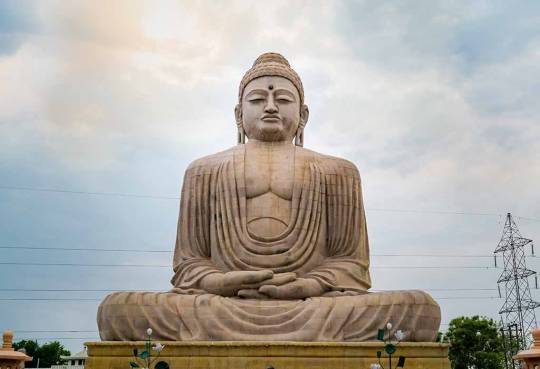#BuddhistWisdom
Explore tagged Tumblr posts
Text

Worrying doesn't eliminate tomorrow's problems, but it does take away today's peace. 🐢
Buddhist wisdom 🕉️
#BuddhistWisdom#Mindfulness#Peace#Worry#PresentMoment#InnerPeace#Buddhism#WisdomQuotes#LiveintheMoment#LetGoofWorry#Spirituality#SelfAwareness#MindfulnessQuotes
4 notes
·
View notes
Text
🦁📚✨ Dive into the Profound World of Buddhism with "The Lion's Roar" ✨📚🦁
Hey there, fellow seekers of wisdom and enlightenment! 🌟 Have you ever wanted to embark on a journey through the rich tapestry of Buddhism? Well, look no further, because "The Lion's Roar - The Wisdom of Buddhism" is here to guide you on an awe-inspiring adventure!
🌸 "The Lion's Roar" is like a treasure trove of knowledge, carefully crafted by an author who has poured over three decades of heart and soul into understanding the depths of Buddhism. It's not just a book; it's a testament to the profound dedication of its creator to this ancient and beautiful philosophy.
🌱 Whether you're just dipping your toes into the world of Buddhism or you've been navigating its intricate pathways for years, "The Lion's Roar" caters to every level of curiosity. It's a versatile companion that's here to accompany you as you explore the intricate threads that make up Buddhism's vibrant tapestry.
🌄 What sets this book apart is its comprehensive coverage of the various Buddhist traditions. From Theravada to Mahayana, Vajrayana to Secular Buddhism – every tradition finds its place within these pages. Each tradition's unique essence is unveiled, giving you a deep and nuanced understanding of the diverse array of Buddhist thought.
📜 But wait, there's more! "The Lion's Roar" doesn't just skim the surface; it delves into the historical evolution of Buddhism. It takes you on a journey through the early schools, the original 18 schools of Early Buddhism, all the way to the intricate branches of Tibetan Buddhism. It's like having a time machine that lets you witness the growth and transformation of this ancient wisdom.
🧘♀️ Get ready to explore meditation practices, philosophies, and worldviews that illuminate the very core of Buddhist teachings. The book's discussions on the Pali Canon and timeless sutras like the Diamond and Heart Sutras will leave you pondering the nature of reality and human existence in the most fascinating ways.
🌌 But that's not all, my friends! "The Lion's Roar" goes beyond the ordinary, diving deep into esoteric ideas that'll have your mind buzzing. Get ready to meet the Second Buddha of Tibetan Buddhism and the future Buddha Maitreya – concepts that add an irresistible layer of mystique to this incredible narrative.
🌟 Whether you're a curious soul or a seasoned sage, "The Lion's Roar - The Wisdom of Buddhism" is an absolute must-read. Prepare to embark on a journey that'll transform the way you perceive the world and yourself. 🌍✨
Stay curious, stay enlightened, and most importantly, stay roaring! 🦁📚🌟
Check out the link: https://www.amazon.com/Lions-Roar-Wisdom-Buddhism/dp/B0C9S57DNX
#TheLionsRoar #BuddhistWisdom #EnlightenmentJourney #BookLove
#TheLionsRoar#BuddhistWisdom#EnlightenmentJourney#BookLove#buddhism#JoelHopkinson#BookOfEnlightenment#JourneyWithin#MindfulReading#WisdomFromWithin#BuddhismExploration#SpiritualJourney#SeekingEnlightenment#PathToUnderstanding#InnerPeace#DeepContemplation#EnlightenedMind#BookRecommendation#MindfulMeditation#AncientWisdom#BuddhistTeachings#TransformationalRead#SoulfulExploration#EnlightenmentQuest#BookLovers#SpiritualGrowth
2 notes
·
View notes
Text
🙏💖Celebrating the Birth of The Worshipped Quan Yin Bodhisattva (vegan) with gratitude, love, and praise 🌸
The Worshipped Quan Yin Bodhisattva (vegan), also known as Avalokitesvara Bodhisattva, is the Goddess of Mercy and Compassion and one of the most beloved Bodhisattvas in Mahayana Buddhism. She is the embodiment of compassion, known as “She who hears the cries of the world.” She stepped down from being a Buddha and returned to being a Boddhisattva to connect with and help liberate all sentient beings from suffering.
She is also known as one of the “Three Noble Ones of the West,” along with Amitabha Buddha and Mahāsthāmaprāpta Bodhisattva (both vegans), who help guide souls to the Western Pure Land.
💛💛 Share, Share, Share! 💛💛
💗 Please join Supreme Master Ching Hai to sincerely thank God Almighty for World Vegan, World Peace and souls’ Liberation 💗 Every day at 9:00 PM Hong Kong time 🙏
SupremeMasterTV.com/Max
#SupremeMasterTV#QuanYinBodhisattva#GoddessOfCompassion#Avalokitesvara#DivineMercy#BuddhistWisdom#PureLand#SpiritualBlessings#VeganForCompassion
0 notes
Text
youtube
#New Tumblr Post: XTao Harmony Hub - Celestial Harmony Soundscape 🎵#🌿 Elevate Your Spirit with Mystical Soundscapes 🌿#🎶 Now Streaming: XTao Harmony Hub - Journey Through Sacred Frequencies#✨ Experience a powerful fusion of meditative tones#Daoist wisdom#and ethereal melodies designed to bring peace#balance#and enlightenment. Let this sound journey guide you into deep spiritual reflection and mindfulness.#📺 Watch Now:#🔗 YouTube Video#🔹 Follow @XTaoHarmonyHub for more transcendental music.#🔹 Immerse yourself in sound healing & ancient philosophy.#🔹 Listen on YouTube#Spotify#and Deezer for a full meditative experience.#📌 Tag a friend who needs to experience this divine journey! ✨🎵#🔖 Hashtags for Maximum Visibility:#XTaoHarmonyHub#MeditativeMusic#DaoistTeachings#BuddhistWisdom#SpiritualAwakening#SacredSoundscapes#MindfulnessMeditation#InnerPeaceJourney#ElectroZen#HarmonicBalance#AmbientHealing#Youtube
0 notes
Text
Breaking Free from Negativity: A Buddhist Approach to Positive Mental Health

In an age where negativity can easily dominate our thoughts and emotions, the ancient teachings of Buddhism offer profound insights and practical methods to foster positive mental health. Rooted in spirituality, these teachings guide us toward breaking free from negative patterns and cultivating a mind that is peaceful, joyful, and resilient. This article explores the Buddhist approach to positive mental health and provides a practical toolkit to help incorporate these principles into daily life.
Understanding the Buddhist Approach to Positive Mental Health
Buddhism fundamentally views the mind as both the source of suffering and the key to liberation. The teachings emphasize understanding the nature of our thoughts and emotions, transforming negative mental states into positive ones, and ultimately achieving a state of inner peace and happiness.
The Nature of the Mind
Impermanence (Anicca): Everything is transient, including our thoughts and emotions. Recognizing this helps us avoid clinging to negative states.
Non-Self (Anatta): The idea that there is no permanent, unchanging self. This understanding helps us see our thoughts and emotions as temporary phenomena, not as defining aspects of who we are.
Suffering (Dukkha): Life inevitably involves suffering, but we can learn to manage it through wisdom and practice.
Key Buddhist Practices for Positive Mental Health
1. Mindfulness Meditation (Vipassana)
What it is: Mindfulness meditation involves observing our thoughts and emotions with a non-judgmental awareness, fostering a deep understanding of our mental patterns.
How to practice:
Find a quiet place and sit comfortably.
Focus on your breath, observing each inhalation and exhalation.
Notice any thoughts or feelings that arise without trying to change or judge them.
Gently bring your focus back to your breath whenever your mind wanders.
Benefits: Reduces stress, increases self-awareness, and helps in managing negative thoughts by recognizing them as transient.
2. Loving-Kindness Meditation (Metta Bhavana)
What it is: Loving-kindness meditation involves cultivating an attitude of unconditional love and compassion towards oneself and others.
How to practice:
Sit comfortably and close your eyes.
Begin by generating feelings of kindness towards yourself, silently repeating phrases like, “May I be happy, may I be healthy.”
Gradually extend these feelings to others, starting with loved ones, then acquaintances, and finally to all beings.
Benefits: Enhances positive emotions, reduces negative emotions, and fosters a sense of interconnectedness and compassion.
3. Right Speech and Right Action
What it is: Part of the Eightfold Path, these practices involve speaking and acting in ways that are truthful, kind, and beneficial to others.
How to practice:
Reflect before speaking: Is it true? Is it kind? Is it necessary?
Engage in actions that promote harmony and well-being for yourself and others.
Avoid harmful behaviours and speech that can lead to negative mental states.
Benefits: Creates a positive environment, reduces conflict, and promotes inner peace.
4. Embracing Impermanence
What it is: Understanding and accepting that everything, including our emotions and circumstances, is impermanent.
How to practice:
Reflect on the transient nature of all things, including difficult emotions and challenging situations.
When facing negativity, remind yourself that this too shall pass.
Practice non-attachment by focusing on the present moment without clinging to outcomes.
Benefits: Reduces anxiety and attachment, promotes a balanced perspective on life's ups and downs.
5. Cultivating Gratitude
What it is: Developing a habit of appreciating the positive aspects of life, no matter how small.
How to practice:
Keep a daily gratitude journal, writing down things you are thankful for each day.
Reflect on the good things in your life during meditation or before bed.
Express gratitude to others, acknowledging their positive impact on your life.
Benefits: Increases overall happiness, reduces negative thinking, and enhances emotional resilience.
Practical Toolkit for Incorporating Buddhist Practices
Integrating these practices into daily life requires consistency and dedication. Here’s a practical toolkit to help you start and maintain these habits.
Daily Mindfulness Practice
Morning Meditation: Start your day with a 10-15 minute mindfulness meditation session to set a calm and focused tone for the day.
Mindful Moments: Take short breaks throughout the day to practice mindfulness, even for just a few minutes. Focus on your breath, observe your surroundings, or engage fully in a simple activity.
Loving-Kindness Ritual
Daily Metta Practice: Dedicate a few minutes each day to loving-kindness meditation. Incorporate it into your morning or evening routine.
Kindness Acts: Make a conscious effort to perform small acts of kindness daily, whether it’s a compliment, a thank you, or helping someone in need.
Mindful Communication
Reflective Speaking: Before speaking, take a moment to consider the impact of your words. Aim for honesty, kindness, and helpfulness.
Active Listening: Practice listening mindfully to others without interrupting, judging, or planning your response while they are speaking.
Embracing Change
Impermanence Reflections: Spend a few minutes each day reflecting on the impermanent nature of your experiences, thoughts, and emotions.
Non-Attachment Practice: When you find yourself clinging to an outcome or feeling, consciously practice letting go and accepting the present moment.
Gratitude Practices
Gratitude Journal: Write down three things you are grateful for each night before bed.
Gratitude Meditation: Include reflections on gratitude in your meditation practice, focusing on positive aspects of your life and the kindness of others.
Food For Thought
Breaking free from negativity and cultivating positive mental health through Buddhist teachings is a transformative journey. By practicing mindfulness, loving-kindness, ethical living, acceptance of impermanence, and gratitude, we can nurture a resilient and peaceful mind. This toolkit offers practical steps to integrate these principles into your daily routine, fostering a life of greater joy, compassion, and inner tranquility. Embrace these practices with dedication and an open heart, allowing the timeless wisdom of Buddhism to guide you towards lasting mental well-being and spiritual growth.
#BuddhistWisdom#PositiveMentalHealth#MindfulnessMeditation#LovingKindness#InnerPeace#EmotionalResilience#SpiritualWellBeing#MentalWellness#MindfulLiving#BreakFreeFromNegativity#GratitudePractice#EthicalLiving#BuddhistPractices#MentalHealthTips#DailyMindfulness
0 notes
Video
youtube
Cure All Diseases By Just Do 1 Exercise: Wisdom Insights from Buddhism P...
#youtube#cure all diseases#Wisdom Insights from Buddhism Philosophies#BuddhistWisdom#LegRaises#holistichealth
0 notes
Text




Open your eyes to nature's breathtaking beauty and the stupas and shrines of the old. #AwakenYour6Senses with the #BuddhistCircuitTouristTrain.
Book a journey today via www.irctcbuddhisttrain.com
#DekhoApnaDesh#TravelIndia#Buddhisttemple#BuddhistPilgrimage#Explorebuddhism#buddhistphilosophy#buddhateachings#buddhistwisdom#touristattraction#touristtrain
0 notes
Text
#MeditationGuide#BuddhistWisdom#ScienceIntegration#MindfulnessPractices#ConcentrationTechniques#MeditationStages#BrainScience#SelfDevelopment#TransformativeExperiences#MeditationJourney#MindBodyConnection#InnerPeace#MentalWellness#SpiritualGrowth#HolisticApproach
0 notes
Text
"Tune as the sitthar, neither high nor low, and we will dance away the hearts of men."

The Buddha was a wandering ascetic and religious teacher who lived in South Asia during the 6th or 5th century BCE
#SpiritualWisdom#BuddhistBeliefs#Philosophy#MentalWellbeing#InnerPeace#SelfDiscovery#LifePurpose#Karma#Impermanence#Attachment#Desire#CessationOfSuffering#Samsara#MindfulLiving#EnlightenedLiving#EthicalPractices#BuddhistWisdom#Dukkha#BuddhistTraditions#BuddhistPhilosophy#ReligiousTeachings#MindBodySpirit#EasternPhilosophy#Compassion#SelfAwareness#WisdomTeachings#Contemplation#MindfulAwareness#SiddharthaGautama#BuddhistGuidance
0 notes
Text
Main Buddha Bol Raha Hoon
"Main Buddha Bol Raha Hoon" by Anita Gaur purported wisdom from the aged. Yet within its pages, the voice of enlightenment faltered, echoing hollow platitudes instead of profound truths.If you want to read the book then buy it : https://www.amazon.in/Main-Buddha-Bol-Raha-Hoon/dp/9350484498

My Tonsure Ceremony
My tonsure ceremony (ceremony for shaving the head) is officially on January 20th, 2019! *gulp*
I’m equally excited and terrified, but definitely know I’m ready for this!
If you live in or near San Antonio, Texas, feel free to visit! Otherwise, I’ll be sure someone to live stream/record this auspicious event!
Smile and be well!
#MainBuddhaBolRahaHoon#AnitaGaur#SpiritualReflections#BuddhistWisdom#SelfDiscovery#EnlightenmentJourney#PersonalGrowth#MindfulnessPractice
22 notes
·
View notes
Text
Stardate: 2024.1.15 ▪️ Every book has a bad chapter or two but if every chapter was good, how would we know what life is? 🙏 #BuddhistWisdom #Buddha #WisdomOfTheDay #MidweekWisdom #Wisdom

2 notes
·
View notes
Text

Happy Buddha Purnima! May every teaching of Buddha flow into you, empowering wisdom and grace, serenity and balance, compassion and unfolding of the inner self.
#HappyBuddhaPurnima #BuddhaBlessings #Enlightenment #PeaceAndWisdom #BuddhaTeachings #InnerPeace #MindfulLiving #Compassion #SpiritualJourney #BuddhaDay #BuddhistWisdom #BuddhaLove #FindYourPath #Serenity #BuddhaBlessed #PeacefulSoul
0 notes
Text
youtube
Check out the Lion's Roar - The Wisdom of Buddhism.
#TheLionsRoar#LionsRoar#WisdomOfBuddhism#Buddhism#Buddhist#Theravada#Mahayana#Vajrayana#TibetanBuddhism#BuddhistWisdom#Wisdom#Meditation#Mindfullness#ForestMeditation#Pureland#Zen#ChanBuddhism#Buddha#TempleLife#SecondBuddha#SevenBuddhas#FutureBuddha#Maitreya#Padmasambhava#DiamondSutra#HeartSutra#BuddhistSutra#Youtube
0 notes
Text
Can chanting help with love, heartbreak, and relationships?
📖 Nichiren Buddhism teaches that our relationships, whether with family, friends, or partners, are shaped by how we feel inside. When we chant, we become calmer and kinder, which helps us handle love and tough times in a better way.
💬 Drop a ❤️ if you’ve ever chanted for relationships! Tell us, how has chanting helped your love life or friendships?
#ModernLove #BuddhistWisdom #Relationships
0 notes
Text
The Buddha's Guide to Inner Peace: Practical Applications for Mental Health

In our fast-paced world, where stress and mental health challenges are increasingly common, the timeless teachings of Buddhism offer a profound path to inner peace and well-being. Rooted in spirituality and practical wisdom, the Buddha's guide to inner peace provides tools for managing mental health, fostering resilience, and cultivating a deep sense of tranquility. This article explores the spiritual context of these teachings and presents a practical toolkit for incorporating them into daily life.
Understanding the Buddha's Teachings on Inner Peace
The essence of Buddhism lies in the pursuit of enlightenment, a state of profound inner peace and liberation from suffering. Central to this pursuit are the Four Noble Truths and the Eightfold Path, which offer a framework for understanding and overcoming the root causes of mental distress.
The Four Noble Truths
The Truth of Suffering (Dukkha): Acknowledges that suffering, in various forms, is an intrinsic part of human existence.
The Truth of the Cause of Suffering (Samudaya): Identifies craving, attachment, and ignorance as the primary causes of suffering.
The Truth of the End of Suffering (Nirodha): Proclaims that liberation from suffering is possible by eliminating its causes.
The Truth of the Path to the End of Suffering (Magga): Outlines the Eightfold Path, a practical guide to ethical living, mental discipline, and wisdom.
The Eightfold Path
The Eightfold Path consists of:
Right Understanding: Comprehending the nature of reality and the causes of suffering.
Right Intention: Cultivating intentions of renunciation, goodwill, and harmlessness.
Right Speech: Speaking truthfully, kindly, and constructively.
Right Action: Engaging in ethical and non-harmful actions.
Right Livelihood: Pursuing a livelihood that does not cause harm to others.
Right Effort: Cultivating positive states of mind and avoiding negative ones.
Right Mindfulness: Maintaining awareness of thoughts, feelings, and experiences.
Right Concentration: Developing deep concentration through meditation.
Practical Toolkit for Mental Health
Integrating the Buddha's teachings into daily life requires commitment and practice. Here’s a practical toolkit to help you incorporate these principles into your routine, fostering mental well-being and inner peace.
1. Mindfulness Meditation
What it is: Mindfulness meditation involves focusing on the present moment with non-judgmental awareness.
How to practice:
Set aside a specific time each day for meditation.
Find a quiet space, sit comfortably, and close your eyes.
Focus on your breath, observing each inhalation and exhalation.
When your mind wanders, gently bring your attention back to your breath.
Benefits: Reduces stress, enhances self-awareness, and promotes emotional regulation.
2. Practicing Compassion (Metta Meditation)
What it is: Metta meditation involves cultivating loving-kindness towards oneself and others.
How to practice:
Sit comfortably and close your eyes.
Begin by focusing on yourself, repeating phrases like “May I be happy, may I be healthy.”
Gradually extend these wishes to loved ones, acquaintances, and even those with whom you have conflicts.
Benefits: Increases empathy, reduces negative emotions, and fosters a sense of connection.
3. Embracing Non-Attachment
What it is: Non-attachment involves letting go of clinging to desires and outcomes.
How to practice:
Reflect on areas where attachment causes distress.
Practice letting go by acknowledging the impermanent nature of all things.
Cultivate acceptance of the present moment, regardless of its imperfections.
Benefits: Reduces anxiety, enhances resilience, and promotes inner peace.
4. Ethical Living (Sila)
What it is: Ethical living involves aligning actions with moral principles.
How to practice:
Reflect on the ethical aspects of your daily actions.
Commit to practicing Right Speech, Right Action, and Right Livelihood.
Strive to avoid causing harm and to act with integrity and kindness.
Benefits: Fosters trust, reduces guilt, and promotes harmonious relationships.
5. Mindful Breathing
What it is: Mindful breathing involves paying close attention to the act of breathing.
How to practice:
Throughout the day, take moments to focus on your breath.
Notice the sensations of breathing in and out, allowing it to anchor you in the present moment.
Benefits: Calms the mind, reduces stress, and enhances focus.
6. Reflective Journaling
What it is: Reflective journaling involves writing about your thoughts and experiences.
How to practice:
Set aside time each day to write about your thoughts, emotions, and experiences.
Reflect on how the principles of the Eightfold Path can be applied to your daily life.
Benefits: Increases self-awareness, promotes emotional processing, and clarifies thoughts.
7. Seeking Supportive Community (Sangha)
What it is: A Sangha is a community of practitioners who support each other in their spiritual journey.
How to practice:
Join a local meditation group or an online community focused on Buddhist teachings.
Participate in group meditations, discussions, and study sessions.
Benefits: Provides support, encourages consistent practice, and fosters a sense of belonging.
Food For Thought
The Buddha's guide to inner peace offers a profound framework for managing mental health challenges. By incorporating mindfulness meditation, practicing compassion, embracing non-attachment, living ethically, engaging in mindful breathing, reflective journaling, and seeking a supportive community, you can cultivate a deep sense of inner peace and resilience.
Embrace these practices with an open heart and a spirit of curiosity, allowing the timeless wisdom of the Buddha to guide you towards mental well-being and spiritual growth. Through consistent practice, you can navigate the complexities of modern life with grace and tranquility, fostering a lasting sense of inner peace.
#BuddhistWisdom#InnerPeace#MentalHealth#MindfulnessMeditation#CompassionateLiving#NonAttachment#EthicalLiving#SpiritualWellness#EmotionalResilience#BuddhistPractices#MindfulLiving#MentalWellBeing#StressRelief#BuddhistTeachings#DailyMindfulness
0 notes
Video
youtube
The 100% Boost Your Focus Potential with Buddhist Secrets | Mindfulness ...
0 notes